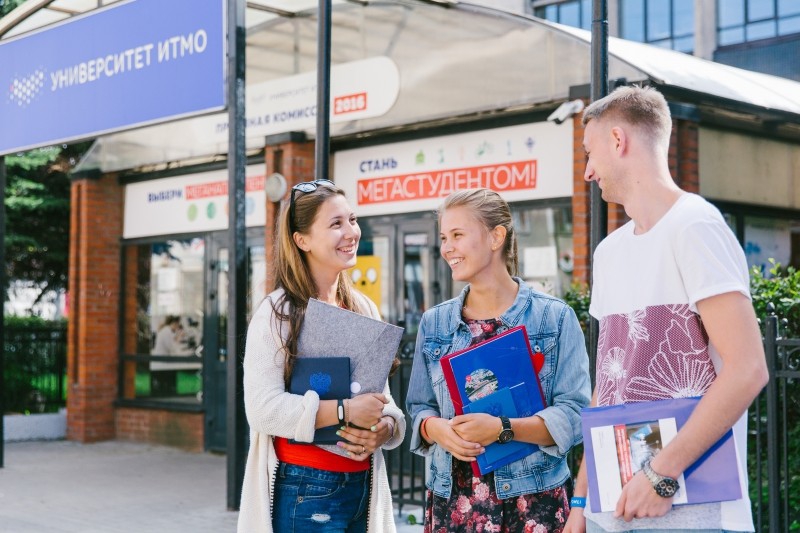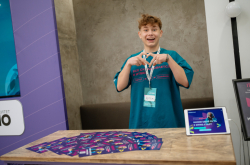These days, higher education has to keep pace with the rapidly changing trends in the job market. In view of this, what are the key goals for ITMO University in regard to Master’s degree programs?
Our main task today is to systematically develop our Master’s program system. That includes a number of initiatives for prospective students, organization of the admission campaign, improvement of quality of education at Master’s programs, and collaboration with our students’ current and prospective employers, as well as coordination of our students’ research and project work.
First, we must understand who our Master’s students are: their vision, their needs, what motivated them to continue their education, and why they chose this over other options, like professional development programs or self-education. In response, we aim to create a full-fledged ecosystem in which the University will serve as a platform for professional improvement and harmonious development.
It’s important to understand that many of our Master’s students already have jobs and a significant income. They could be recent graduates, or those who had gone into a different field long ago, but decided to change their trade; many of our students have received their previous education from other universities in Russia or abroad, sometimes in a field that’s different from what they learn here. For these reasons, we need to diversify both the content and the formats of our programs, as well as provide opportunities for conscious choice of one’s individual educational track.
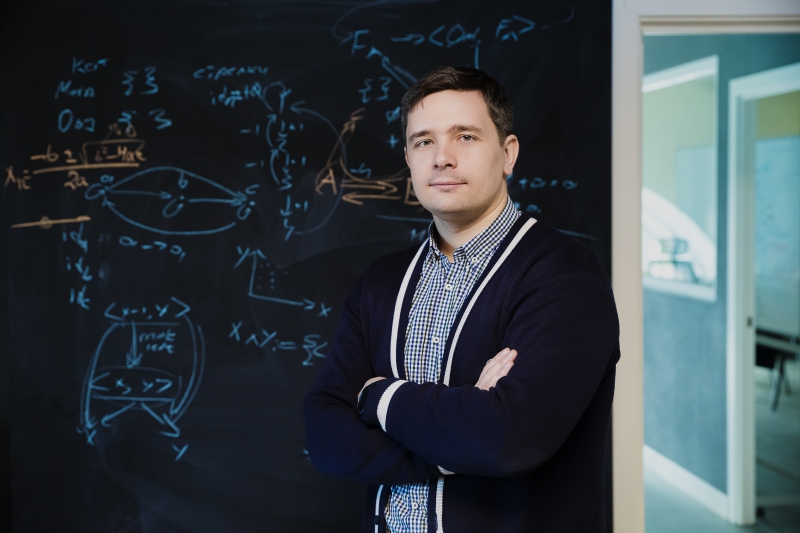
Things change very quickly today, and new technologies transform the job market. In focusing on the global market, we look beyond the horizon to better understand the trends and make well-educated prognoses.
Based on these goals, how exactly do you plan to develop Master’s programs at the University?
One of our key tasks concerns the creation of a cohesive educational system where each type of Master’s programs has its own unique and relevant characteristics.
Right now, there are four types of educational programs at ITMO University, the first being research Master’s programs. These programs are mainly focused on fulfilling the demands of the research market. However, that doesn’t mean that their graduates will necessarily go on to work at research institutes or stay in academia. Parallel to developing the students’ professional skills, we also hone their soft skills, which is a wide range of competencies that help them solve non-trivial tasks, navigate the goings-on of cutting-edge science and generate new scientific knowledge. These skills are in high demand everywhere, including at R&D centers of major companies and in the high tech business.
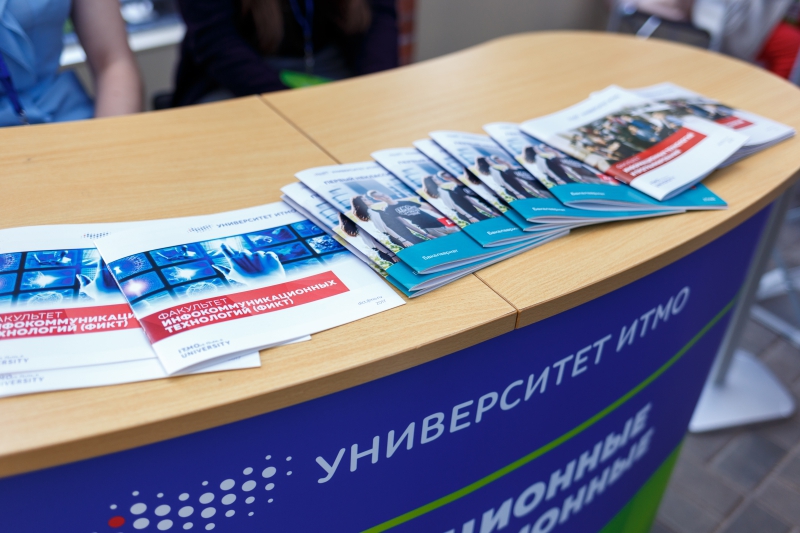
The second type are industrial Master’s programs, which we run together with the industry’s top enterprises, our industrial partners. Their main distinguishing feature is a strong emphasis on R&D work in the real economy.
The third type are entrepreneurial Master’s programs. They can best be described in the context of the very popular field of R&I, which stands for “research and innovation”. These programs train specialists whose end goal is to build their own businesses and run their own startups. At the same time, the graduates can also choose to go into the corporate sector and, perhaps, bring some of their entrepreneurial spirit to the oftentimes inert, and therefore uncompetitive, large companies.
Finally, the fourth type are corporate Master’s programs. These programs are run in collaboration with specific companies and are primarily focused on fulfilling the demands of the job market. A program may be developed with one or several industrial partners; it could be a rather large number of companies that have a specific request for the University and which pass a special selection process. All this correlates with this global idea that our Rector Vladimir Vasilyev speaks of when he says that today, it is not the individual universities or companies competing with each other, but entire ecosystems.
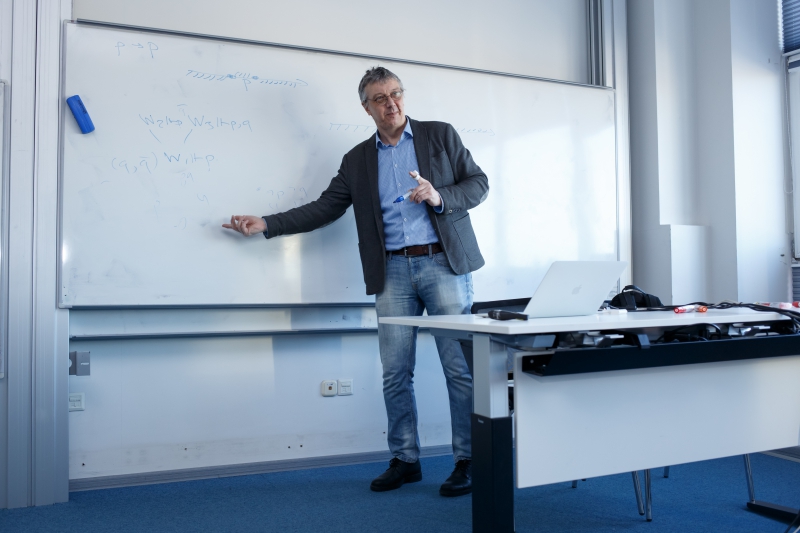
In light of this emphasis on the needs of the global market, are there any plans to increase the number of Master’s programs taught in English at the University?
It’s been clear for a while now that a university’s competitive capacity is dependent on its ability to speak different languages. Every year, some 70% of new Master’s students come to us from outside of St. Petersburg. The share of international students grows as well; they come to us in different ways, including through competitions, from Rossotrudnichestvo, etc.
We’ve set a clear goal of increasing the number of courses taught in the English language. Since each Master’s program at the University includes various specializations, it would be correct, in my opinion, to make sure that at least one specialization within each program is implemented entirely in English.
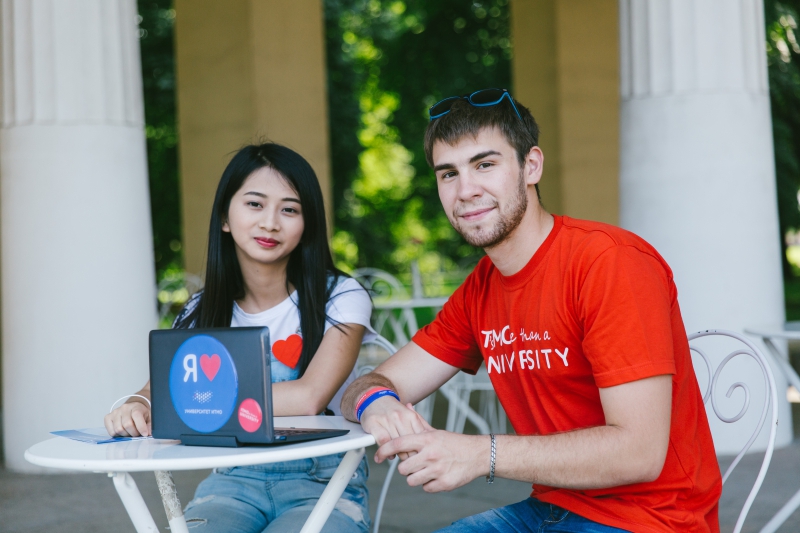
What are the key opportunities offered to students who enroll in Master’s degree programs at ITMO University?
ITMO University is one of the few Russian universities with a unique, recognizable image, in which the top priority is given to freedom and transparency in the most general sense. Here, we erase the lines not only between students, staff, and the administration, but also between programs and departments.
All this “mixing” helps us, on the one hand, establish the conditions in which students can choose their individual educational tracks, and, on the other, develop interdisciplinary competencies. The former is very important to our goal of fulfilling the demand for personalized education, while the latter is beneficial in regard to one’s ability to consider tasks from multiple perspectives and being able to cooperate with one’s colleagues from other fields of science.
The University runs a number of special courses and modules aimed at the development of analytical, creative, critical, and systems thinking, of soft skills, and of digital and entrepreneurial culture. Some of these courses are the first of their kind in Russia.
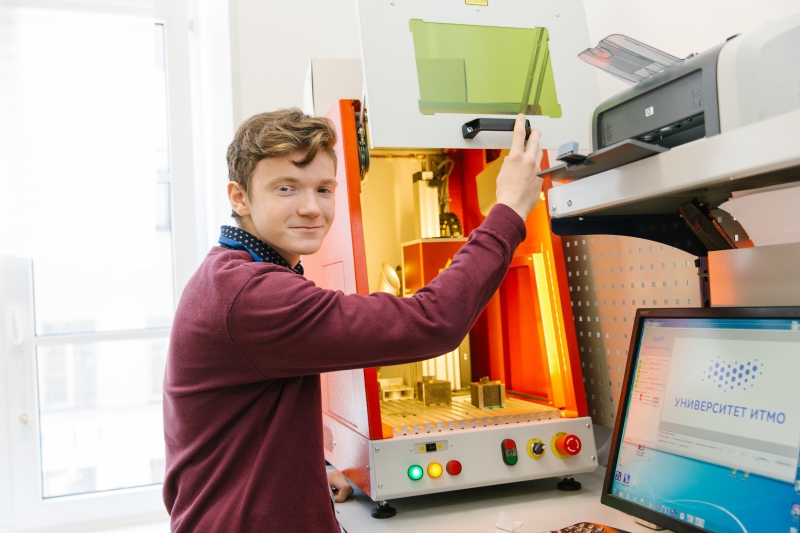
Joining an international lab
At ITMO University, the top priority in decision-making is given to the interests and demands of students. If students wish to tackle scientific challenges and are ready to work on their solutions, then, as Master’s students, they have the chance to join the staff of the University’s international research centers. Many young scientists and engineers are also actively involved in projects for industrial clients, which helps them transition from theory to practice.
Grants for Master’s and PhD students
The University also offers special grants for Master’s and postgrad students. In essence, this means that, upon enrolling at the University, a Master’s or PhD student not only continues their education, but also finds employment. The students can either work on an individual project or join an existing one. This gives them a significant, in my opinion, stipend increase of up to 25,000 rubles a month. But even more importantly, the students acquire valuable competencies while working on important matters. After all, one often has to choose between having a Master’s degree and no experience, or having a Bachelor’s degree and some work experience. This way, you don’t need to choose any longer.
Practical R&D
Yet another opportunity comes in the form of practice-oriented R&D. This is a good option for those who want to put together a team or have already brought one with themselves. ITMO University directly supports these projects with funds provided by the 5-100 Russian Academic Excellence Project. A team may receive up to 5 million rubles for a period of two years to develop a prototype that they can commercialize and profit off even further. These opportunities help students focus completely on their education and self-investment while also making money.
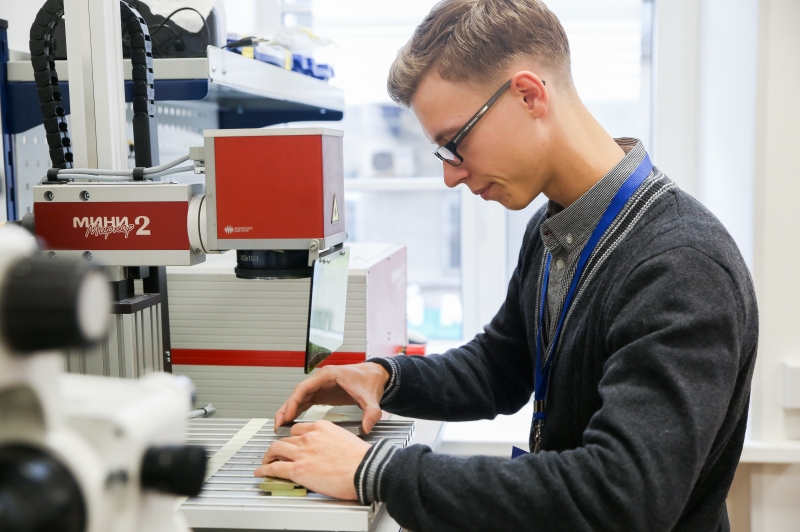
In turn, we attract top scientists and experts to join the University’s academic staff, including those who come to us via the ITMO Fellowship and Professorship program. It’s impossible to create unique and interesting educational content today without establishing strong connections between science and education.
International collaboration
We also have a well-developed international collaboration system. By that, I refer to the University’s double degree programs, which are developed with our international partner universities, as well as our international programs in which a large part of courses are taught by invited scientists from leading universities. Then there’s the internships at our international partner universities, which are practically guaranteed to every student and which they get to choose.
ITMO University also runs a student mobility program that covers up to 70% of all travel expenses. Mobility competitions are announced on a regular basis, and you can apply to one for an opportunity to study at a top university abroad. International experience is highly valued on the job market, making this a very important opportunity.
Finally, it should be noted that the University maintains a variety of extracurricular student activities, including sports and creative clubs, initiatives, and massive events in St. Petersburg, Russia, and abroad. All these things help our students study and develop as well-rounded individuals.
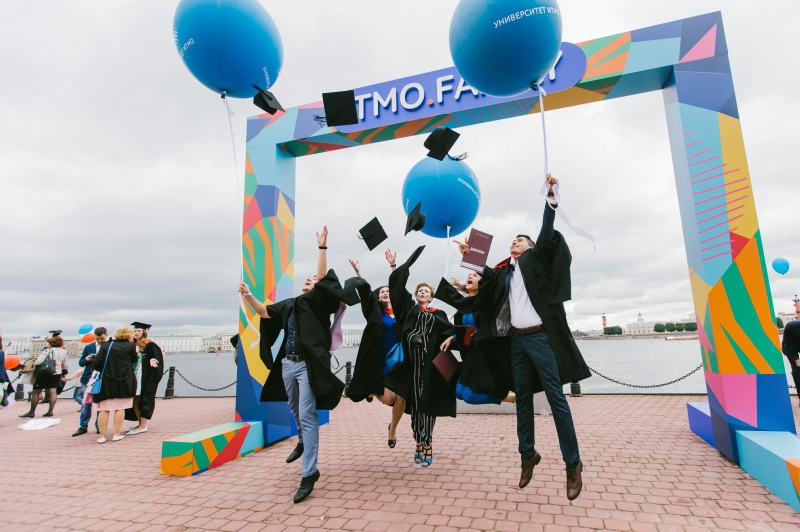
What are the key features of admissions to Master’s degree programs in 2019?
In 2019, ITMO University will accept 2,645 Master’s students on a tuition-free basis into more than 70 Master’s programs.
In terms of navigation, it’s important to make it clear to prospective students what makes each program, specialization, and track special, as well as which language they’re given in, and how they can transfer between programs. We give our students a wide choice of opportunities for application in order to evaluate their existing achievements and potential without limiting a student’s worth to their ability to find the answers to a test.
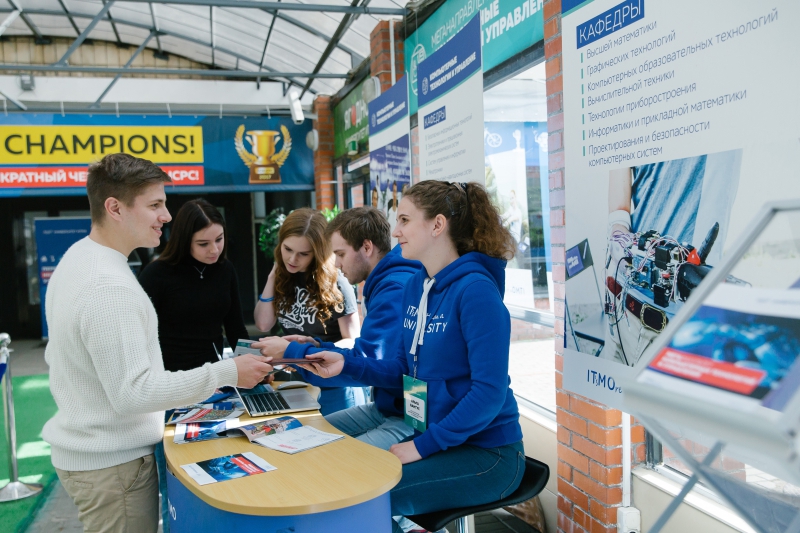
What other opportunities, in addition to exams, do applicants have?
More than half of all Master’s students come to ITMO University from other universities, cities, regions, and even countries, which is why we conduct entrance exams remotely. But there also a number of other, less orthodox opportunities:
ITMO University’s traditional portfolio contest has proved itself an excellent alternative to entrance exams not only among the University’s returning graduates, but also the graduates of other universities. According to last year’s statistics, more than 40% of applicants were graduates of other universities, including foreign ones. Last year, 230 of almost 300 applicants had been chosen and recommended for enrollment into Master’s programs without needing to pass their entrance exams.
Participants of the competition pass through rigorous selection in the Congress’s preparation stage. This year, we received a total of 304 applications, and the results will be revealed in mid-April as the event ends. Aside from an opportunity to ensure one’s enrollment at ITMO University far in advance, and, therefore, to begin packing for a trip to St. Petersburg without too much hurry, participants can also prove their worth and be recommended for employment in their first year as members of a Master’s grant project.
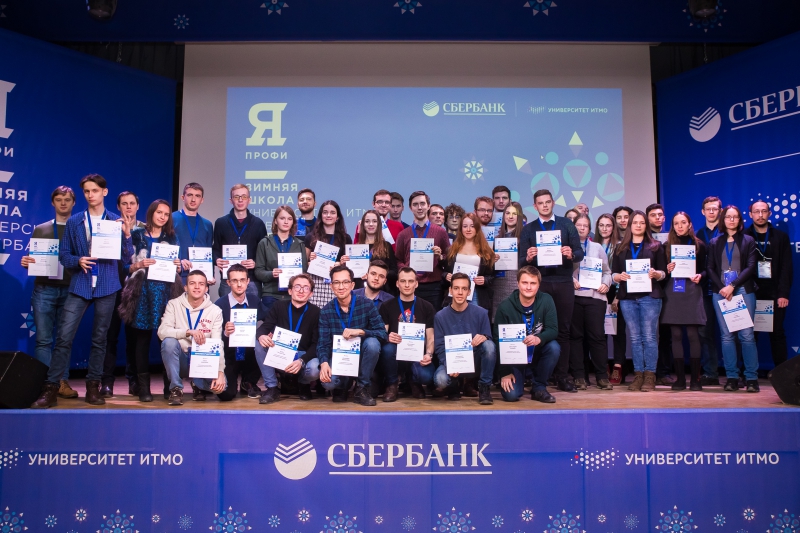
An additional bonus for the participants of SCAMT Workshop Week is the opportunity to enter the Master's degree programs “Molecular Biology and Biotechnology” and “Chemistry of Applied Materials” without entrance exams.
- A number of competitions for prospective students of specific programs:
Research Paper Competition at the Faculty of Physics and Engineering;
“Science Needs You” contest at the Faculty of Laser Photonics and Optoelectronics.
- Prospective international students can enroll at ITMO University by participating in the international academic competition Open Doors.
- International students can also learn more about their application opportunities at int.ifmo.ru.
In my opinion, all these opportunities are a great chance to test one’s potential and evaluate it in terms of individual effort, as Master’s education carries an implication of being able to work independently, efficiently plan one’s activities, set goals, and achieve them.
